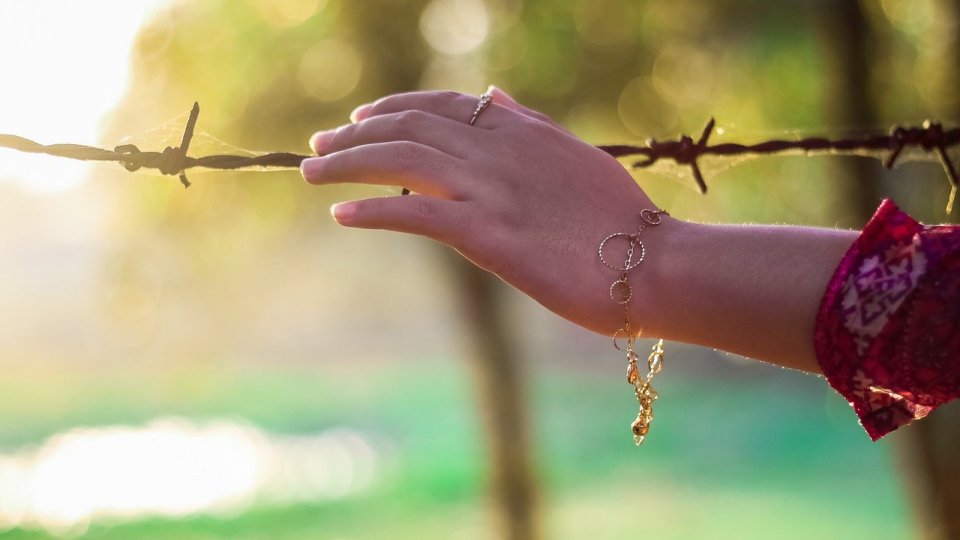Violence is defined by actions or words that are intended to hurt people. It’s no myth that forms of violence against anyone happen equally online as they do offline. South West Grid for Learning operates three helplines to support victims of online violence, provide advice, and create awareness of these crimes and experiences and the long-term impacts they can have. The Professionals Online Safety Helpline, the Revenge Porn Helpline and Report Harmful Content are working together to eliminate violence against women online.
What does the Revenge Porn Helpline do to eliminate violence against women?
The Revenge Porn Helpline supports all victims of intimate image abuse. Intimate image abuse is a crime that involves sharing (or threats to share) intimate images online without consent, or creating intimate images without the subject’s knowledge or consent. Our work forms part of the global effort to eliminate violence against women and girls by empowering victims to reclaim their identities, pursue criminal charges where appropriate, and prevent further abuse.
We’re here to help. We are the only dedicated UK helpline supporting adult victims of intimate image abuse. The helpline provides a non-judgemental space for support, advice and guidance with the reporting and removal of content which has been shared online.
We want change. The helpline was established as the government was creating a law to criminalise the act of sharing intimate images without consent with the intention of causing distress. Whilst it’s great that this law is in the place, UK legislation needs to be improved and futureproofed to include a new generation of technological advances and provide more substantive protections to victims and punishments to offenders.
We need change. The criminal system can only take us so far in prosecuting against the offence, but to truly create a greater societal change, we need to stop putting the focus on the victim and start asking why images are shared. Until we see a shift in the cultural and societal norms that make people feel able to perpetrate intimate image abuse, our work will not be done.
What does Report Harmful Content do to eliminate violence against women?
The most common issue dealt with by Report Harmful Content (RHC) practitioners is impersonation. We often receive reports of fake profiles, using a person’s real name and images as a means to bully or harass them. Although this issue can affect anyone, we deal with a disproportionate amount of reports from women (65%).
A common theme we see in impersonation cases is abusive male ex-partners attempting to coerce and control. Women reporting this issue are also much more likely to describe offline harms alongside it, such as domestic violence and negative mental health impacts. Offline violence can easily extend into women’s online lives – the two are rarely separate.
We know from first-hand experience that the impacts of this type of online violence on women can be huge. That’s why we are so proud of our success rate in removing impersonation accounts. To date, we have actioned 92% of all harmful content reported to us. We’re working hard to maintain this success and, in doing so, make the internet a place where women are free from violence.
What does the Professionals Online Safety Helpline do to eliminate violence against women?
On the Professionals Online Safety Helpline, we see the theme of consent coming up within cases time and time again. Whether it’s in image abuse, oversharing of personal information, or un-authorized access to devices, consent comes into our work on a near-daily basis. One of the issues we see and hear of a lot is sexting – although perhaps not as much as the media might have you believe.
Only 4% of contacts on the helpline relate to sexting. However, of that 4%, consent or lack thereof is a concern in 100% – and while boys can be victims, we see girls being affected by this more often. We also know female teachers are more likely to be objectified in this way online. Violence against women and girls in this context is so common, it’s almost normal. This is what we need to change.
Children send or receive unsolicited sexual images or break the trust of someone else by sharing someone’s images with people who were never meant to see it. One of the things we are doing, as well as supporting the people that call us, is creating resources for young people around this.
A lot of the resources around sexting are “don’t do it” or “think before you do it” messages… Which are absolutely useless if you have already done it!
Introducing, So You Got Naked Online. A simple, non-judgmental response to sexting with some practical tips to help resolve the issue. The resource was originally written a few years ago but, over the last month, the helpline team have re-worked the resource to bring it into 2019 – now including whole sections on consent. Awareness around consent is increasing and having it laid out in black and white will provide a useful reference for children and the people supporting them.
We are lucky and grateful to be supporting the people who support young people. One call to the Professionals Online Safety Helpline could end up influencing dozens of young people with the advice we give. Whether it’s about cyberbullying, harassment, impersonation, image abuse, sexting, or any kind of online issue – we are proud to be contributing to the prevention of violence against women and girls online.
Individual actions, global change
Fighting violence against women and girls is a global effort, made up of millions of individual actions. A single act by a single person may seem insignificant, but en masse, actions affect cultural change. Cultural changes then affect policy and legislation. And those individual actions have each played their part.
We hope that our individual actions will keep on improving the lives of women and girls and, consequently, everyone around the world.






